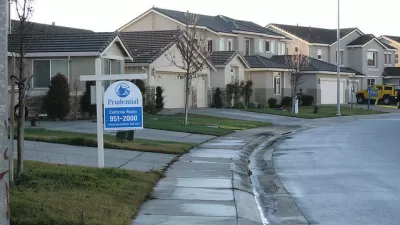Afraid of losing their investment in a down market, homeowners aren't moving out of their neighborhoods - even if their jobs do.
"Only 13 percent of job seekers finding positions in the third quarter of 2008 moved for their new job, according to outplacement firm Challenger, Gray & Christmas. That is down from 15 percent in 2007 and 16 percent in 2006.
"We are seeing a lot of moves that are delayed or canceled because of the financial concerns people have," says Joseph Benevides, senior vice president of Paragon Global Resources, a relocation service. "The big impediment is the price of housing in the home they're leaving. The house is worth less than they paid for it or worth less than they owe. That is the principal reason relocations are being refused, certainly surpassing family."
Relocations are also taking longer. "The time has extended pretty dramatically in the last 12 months or so," Mr. Benevides says. That creates a need for duplicate housing as transferees maintain their existing home while accruing living expenses in a new location. Benevides calls it "a major cost issue."
To spur moves, some employers are offering "loss on sale" protection. If a house sells for less than the purchase price, a company covers the loss."
FULL STORY: Workers put down roots

Planetizen Federal Action Tracker
A weekly monitor of how Trump’s orders and actions are impacting planners and planning in America.

Maui's Vacation Rental Debate Turns Ugly
Verbal attacks, misinformation campaigns and fistfights plague a high-stakes debate to convert thousands of vacation rentals into long-term housing.

Restaurant Patios Were a Pandemic Win — Why Were They so Hard to Keep?
Social distancing requirements and changes in travel patterns prompted cities to pilot new uses for street and sidewalk space. Then it got complicated.

In California Battle of Housing vs. Environment, Housing Just Won
A new state law significantly limits the power of CEQA, an environmental review law that served as a powerful tool for blocking new development.

Boulder Eliminates Parking Minimums Citywide
Officials estimate the cost of building a single underground parking space at up to $100,000.

Orange County, Florida Adopts Largest US “Sprawl Repair” Code
The ‘Orange Code’ seeks to rectify decades of sprawl-inducing, car-oriented development.
Urban Design for Planners 1: Software Tools
This six-course series explores essential urban design concepts using open source software and equips planners with the tools they need to participate fully in the urban design process.
Planning for Universal Design
Learn the tools for implementing Universal Design in planning regulations.
Heyer Gruel & Associates PA
JM Goldson LLC
Custer County Colorado
City of Camden Redevelopment Agency
City of Astoria
Transportation Research & Education Center (TREC) at Portland State University
Jefferson Parish Government
Camden Redevelopment Agency
City of Claremont



























